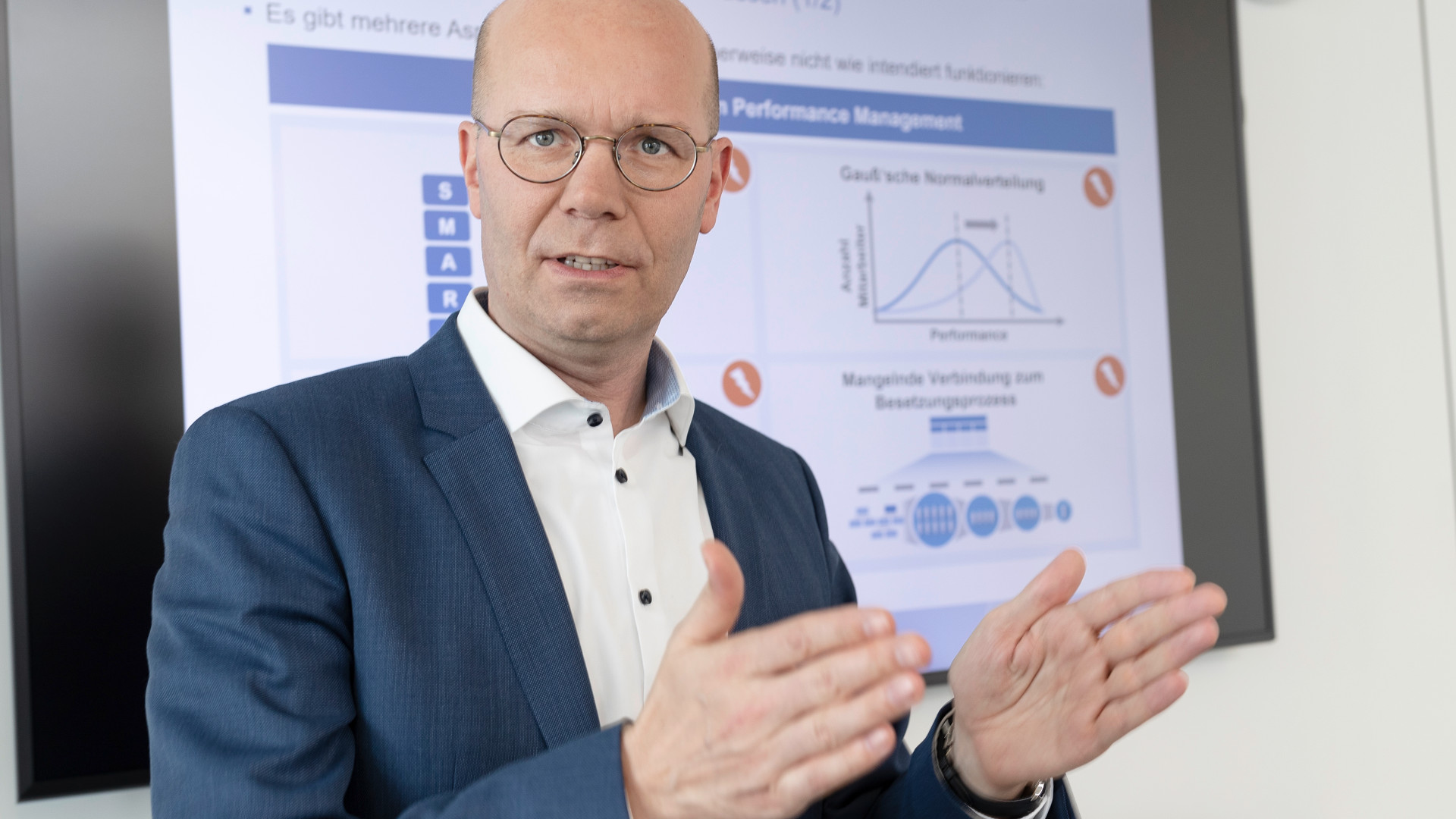Frank Gierschmann: The shortage of skilled workers makes companies face new challenges: in many industries and specialist fields. One group is particularly concerning: experts – in other words, those employees who bring exactly the expertise that is so desperately needed to achieve strategic goals.
The fact that companies need experts is nothing new. What’s different nowadays?
Laura Hohmann: What’s different from before is that, nowadays, we’re talking about a completely different business context than we did a few years ago. While companies previously wanted to grow in their traditional business area above all else, today it’s all about radical changes to business models. And without experts, these changes only look good on paper.
What do you mean by that exactly? Could you give an example?
Frank Gierschmann: Car manufacturers have continuously improved the combustion engine and internationalized their production and distribution network. So far, that’s what we’ve been accustomed to. But we’ve been experiencing an upheaval for the last two or three years. Companies want to transform themselves into mobility service providers. It’s all about new topics such as autonomous driving and electromobility, topics which we weren’t aware of yesterday and which will be obsolete tomorrow.
Laura Hohmann: To do this, they need employees with special expertise and extensive experience, particularly in the field of digitalization. And that’s the skillset that these experts would have immediately available. As time passes quickly, simply developing existing company employees to fill the vacant positions isn’t enough. That’s why it’s becoming increasingly important to recruit suitable graduates and experienced experts. Additionally, similar profiles are becoming ever more important across different sectors. This only intensifies the shortage of experts.
So, you’re saying that the solution lies in more intense recruitment measures?
Frank Gierschmann: Companies don’t have to just intensify their recruitment efforts; they need to diversify them too – and this applies to all industries and expert roles. Anyone who is still for example working with sophisticated diagnostic processes in recruitment is – in the worst-case scenario – losing out on suitable candidates faster than they can say “employee value proposition”.
But what’s the reason behind this? Aptitude diagnostics works with scientifically proven methods.
Laura Hohmann: That’s right. But this method was aimed at selecting the best applicant from a preselected pool of candidates. It was all about standardized, complex skills profiles and the cultural fit in the organization. Informative diagnostic tools are what’s needed to see how well experts match these profiles.
Laura Hohmann: Exactly! If that’s done, this person no longer has to be selected, but rather attracted by a particular organization so that they opt for the employer in question.
Frank Gierschmann: To put it in straightforward terms: before, when you were selecting one person from a group of fundamentally suitable applicants, you could barely make any serious mistakes. Nowadays, companies have to pick that sought-after R&D engineer, the IT security expert or the software developer before competitors do and then meet them with their personal interests.
How should recruitment of experts rather look like?
Frank Gierschmann: We need a change of perspective, which connects traditional aptitude diagnostics with marketing and sales in recruitment. Organizations that make compromises now will either notice they’ve done so due to a drop in the number of new recruits, or they’ll find out tomorrow that they’ve got the wrong employees on board. Both of these situations unfortunately have a direct impact on the company’s performance.
Laura Hohmann: As is the case with B2B communication, companies should view experts as key accounts who need to be addressed directly and won over.
Frank Gierschmann: Marketing prepares the ground. In other words, companies should tailor their working environment and total remuneration to the experts’ preferences; they appreciate some degree of freedom and opportunities for development. The companies can thus position themselves as “expert organizations” and convey this by using strong imagery.
Laura Hohmann: Being known in the market as an “expert organization” forms the best basis for effective sales measures. This includes addressing suitable candidates directly through external or internal talent sourcers. Experts are scarce and highly sought-after, so general job adverts wouldn’t translate into further progress; you need more personal contact for this.
Laura Hohmann: Yes, because it’s only when companies identify and approach suitable candidates that they enter into dialog with them quicker than their competitors on the HR market.
Frank Gierschmann: The good old aptitude diagnostics will then be nothing more than a one-sided selection tool. Instead, it will be used to talk to the candidate about conditions which would make for a successful collaborative relationship. It’s a good development which facilitates communication between companies and candidates at eye level.
Ms. Hohmann, Mr. Gierschmann, thank you very much!



